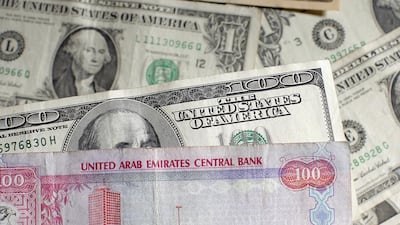The US dollar peg has symbolically been an anchor of the GCC’s recent economic history. Oil, which is priced in dollars, has been its main export and, as a result, the US currency has come to define the region’s trade relationships and forged proximity with the US.
With the sustained drop in oil prices probably ushering in a new paradigm of structural change, rather than a short-term bump in the road, debt is becoming an essential element of GCC governments’ economic policies. While all financing at the sovereign level has so far been in US dollars, there is a growing case for sovereigns, sovereign-related entities and high-rated corporates to begin considering the euro as an alternative.
The main case for euro funding is that the demand for financing has grown and is still growing significantly, making diversification away from US dollars into alternative sources of funding a prudent measure.
Last year, sovereign borrowing, both loans and bonds, soared more than fivefold to US$50.3 billion from $9.1bn in 2015, according to data from Dealogic. The real growth has been in bonds: $38.7bn in notes were issued in last year, more than 10 times previous years’ volumes ($3.2bn in 2015, $3.5bn in 2014, and $3.3bn in 2013).
Abu Dhabi’s $5bn bond issue in April was its first since the financial crisis in 2009. Qatar’s $9bn in May was the biggest ever in the region until Saudi Arabia came to the international bond market for the first time in October and secured $17.5bn in the largest bond sale ever from an emerging market borrower.
This trend is expected to continue. Kuwait has indicated that it will seek to issue $10bn of bonds this year. Meanwhile Saudi Arabia is planning a multi-year programme of debt issuance.
GCC sovereign financing needs could total $560bn between 2015 and 2019, according to a report by S&P, without taking into account debt required by government-related entities and the region’s corporates.
Diversifying into euro-denominated debt allows borrowers to access a separate pool of credit investors, predominantly continental European insurers, pension funds, asset managers and hedge funds, who all have sizeable euro-denominated liabilities.
Recent examples of GCC euro-denominated bond issuers are Emirates NBD; Etisalat, to help finance the purchase of Maroc Telecom, as the Moroccan dirham references the euro; and Ipic, which merged with Mubadala, and the two have significant euro exposure through their sizeable holdings of European assets.
The euro-denominated bond market is after all the deepest, globally, after the US dollar: last year about $1.1 trillion equivalent was issued in euros, versus about $2.7tn in US dollars.
Enlarging the pool of available liquidity is a key rationale for diversification. Indeed, if US dollar volumes remain as high or increase in the future, there is a risk of stretching the dollar market as a single source of funding; the euro-denominated bond market is thus the next large market to open for such rainy days.
To gain access to this market, borrowers are advised to create an initial euro benchmark issue, which they could later use as a pricing point to leverage at times of excessive US dollar bond issuance. Such a strategy entails investment of management’s time to allow for marketing to the new investor base. But it also acts as an insurance policy against exposure to a single source of funding and as a debt management tool.
Aside from diversification, there are other reasons for sovereigns and large corporates to strongly consider borrowing in euros.
European suppliers, contractors and asset purchases have become increasingly important for the region over the years, because they are focused on the infrastructure market that is relevant to the GCC.
The euro’s 25 per cent or so devaluation against the dollar over the past two years has made European suppliers even more competitive and while contracts have not been necessarily euro-denominated in the past, increasingly exporters are pushing to use their own currency for payment. And given the shifting economic, political and geopolitical dynamics, we may see a rebalance of external economic policies of the GCC towards other regions and particularly Europe, which would translate into more strategic investment and sourcing of strategic goods from there.
To be sure there are challenges. There is a limited emerging market-dedicated investor base in euros, as emerging market funds tend to be US dollar-denominated. And some euro investors have restrictions in their ability to invest in non-OECD jurisdictions. However, these are parameters that can and should change in the future.
As such, there is real economic merit in looking at the euro as the next deepest pool of liquidity that can be tapped over the medium term, especially by the better-rated GCC borrowers. It is an attractive solution for the region at a time when it is becoming evermore dependent on debt and evermore sophisticated at managing its debt requirements. By opening up to euro funding, first movers, sovereigns or corporates, would definitely gain in flexibility to navigate their way through the new cycle.
Richad Soundardjee is the chief executive of Société Générale Middle East.
business@thenational.ae
Follow The National's Business section on Twitter

